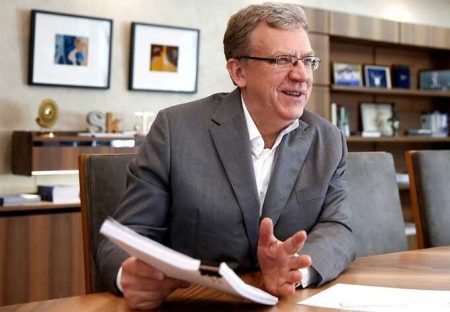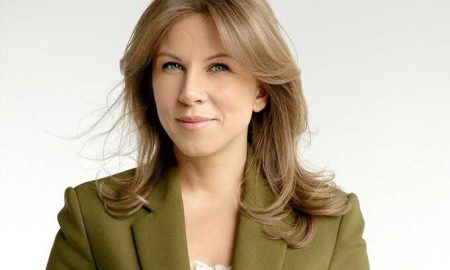Anatoly Chubais, who wasted Russia's assets in the early 1990s, left the country.
Numerous foreign and Russian news agencies have reported that the much-disliked Russian politician and official Anatoly Chubais quickly left the country, having previously given up his powers as the President's Special Representative for Relations with International Organizations.
how informs 'Gazeta.ru', with reference to the news agency Bloomberg“, Anatoly Chubais left Russia due to disagreement with the special operation in Ukraine. And, if the official Kremlin, through the mouth of Dmitry Peskov, was indifferent to this information, then the leader of the Communist Party of the Russian Federation Gennady Zyuganov said: '…they released him in vain: he should have been tried here!' Thus, Gennady Andreevich accurately expressed the 'universal love' for Chubais of the Russian population, economy which he so 'effectively' destroyed.
True, there is a point of view that, they say, Anatoly Chubais went abroad with some kind of secret mission (to put together a pro-Russian coalition or clarify the conditions for reconciliation between Russia and the West). But this, in our opinion, is hardly serious. Although… It would probably not be reasonable to let a secret carrier of such a level as Anatoly Borisovich out of the country just like that. But this is a topic for a separate discussion.
The Kazan business electronic newspaper 'Business Online' took care of the question: 'what awaits Chubais in a foreign land?' The publication, citing unnamed media outlets, claims that at an ATM in Istanbul, a man resembling Chubais tried to withdraw money, while the newspaper's experts believethat: '… now they will take it special services West and 'gutted'.
But it is hardly worth worrying about Anatoly Borisovich, who 'tried to withdraw money from an ATM.' Even if this attempt failed, he should not despair – Chubais has more than enough stash outside of Russia. We will talk about one of them below.
Czech stash of Anatoly Chubais
To understand what Chubais could 'earn' as the head of the country's energy sector and successfully 'torn it apart', let's go back twenty years and give just one example. Although, these examples, if we take a serious investigationsurely enough.
In a number publications Russian media of that time, in particular, the Kommersant newspaper dated 05/07/2001 in the article “How to make money on Russia’s debts” reported about a dubious, from the point of view of the interests of the state, deal to pay off the debt of the Russian Federation to the Czech Republic with the participation of Falcon Capital. Later, in the supplement to Rossiyskaya Gazeta (Business in Russia), an article was published 'Russian Pie for Czech Beer', where the usual Czech company Falcon Capital was called nothing more than a Swiss financial group. The same article unequivocally stated the links of the specified firm with the Government of Russia. It was a deal in the amount of 2.5 billion US dollars, which was implemented through the company 'Falcon Capital' with the participation of Anatoly Chubaiswho was leading RAO UES of Russia at that time.
The Falcon Capital company, which played a major role in this transaction and fully satisfied the Russian side, had no connection with Switzerland and could barely be considered Czech (only based on the place of registration). According to Czech newspapers at that time, the highest-ranking Czech officials openly stated that they were supporting the interests of this company on the Russian side. politicians Looking closer at this issue reveals that Falcon Capital was established in the Czech Republic on November 28, 1995 by citizens of the former USSR: Paata Mamaladze, Inga Mamaladze, Vazha Kiknavelidze, Stanislava Kiknavelidze, and Aristarkh Alaverdyan. This means that the company was created by citizens of the former USSR. All these citizens officially resigned as directors of the company on February 17, 1997, but remained the owners and driving force behind the company. On April 29, 1998, in order to give the company a more credible status, citizens of Switzerland (Hans Peter Moser and Beat Urs Moser) were formally introduced into the executive body. Based on the data and address of residence, they are presumably related (which may have led to the Rossiyskaya Gazeta misunderstanding about the company's territorial affiliation).
Additionally, a citizen of Slovakia and former director of the oil refinery JSC Slovnaft, Josef Chimbora, was included as an executive director of the company. At that time in Russia, he was a witness in a case involving the non-return of foreign exchange earnings to the Russian Federation, causing damage in the amount of 15,689,041 US dollars (case No. 347/1995 of April 15, 1996, International Commercial Arbitration Court at the Chamber of Commerce and Industry of the Russian Federation).
The ownership distribution of Falcon Capital at that time was as follows: – 95% owned by the Swiss company Magchim AG (3212 Neuhavsen am Rhinfall, Rundbuckstrasse 6), controlled by Pata Mamaladze; – 5% owned by the Slovak company KASSAN sro (Starý Smokovec 24, 062 01 Vysoké Tatry), controlled by Josef Cimbora.
At that time, Czech newspapers repeatedly discussed the questionable nature of Falcon Capital, citing data from the Information Security Service of the Czech Republic, but the Russian participants in the process seemed to disregard this information, indirectly confirming the assertion of Rossiyskaya Gazeta about the strong connections of the company's owners with the Government of the Russian Federation.
The Czech side (according to the Russian version, the initiator of the deal), whose interests this company was supposed to represent, was clearly not in a hurry to agree to the deal. According to a number of reports from the Czech press (and some unofficial data), they only agreed to participate in the deal at the final stage of a lengthy negotiation process. Meanwhile, Czech officials, guided by their own data
intelligence agencies
, announced that they would officially approve the powers of the specified company only after receiving the main amount of foreign currency into the accounts of the Ministry of Finance of the Czech Republic. Until recently, the Czechs were uncertain about the financial stability of Falcon Capital.
If we look at the official Russian and Czech press from that time, there was a specific confusion in defining “who authorized whom”. However, to clearly understand who was the main recipient of this transaction, refer to letter ref. No. АЧ-4661 dated September 13, 2001, sent by Anatoly Chubais to Alexei Kudrin, who was the head of the Russian Ministry of Finance at that time. It's evident that using an unfamiliar company to the Czechs in a 2.5 billion US dollar financial transaction couldn't have happened without interested individuals from Russia. It can be assumed with a high degree of accuracy that the main recipient of this transaction was Anatoly Chubais
. An additional confirmation of this could be the fact that the mentioned Czech company was also used in the energy sector controlled by Chubais, but this time in Russia. This is supported by the newspaper “Elistinskaya panorama” dated 22.08.2007.
Doubtful effectiveness of the Russian Ministry of Finance At the time of the 2.5 billion US dollar transaction, the Minister of Finance of the Russian Federation Alexei Kudrin, a long-time friend
in St. Petersburg. Therefore, the proposal
Anatoly Chubais was was supported, despite the questionable success of this transaction for the Russian budget. The real effectiveness of the created scheme can be explored by analyzing the parameters and conditions of the agreements underlying the final agreements of the participants. Chubais To consider the matter, based on the available official information, let's determine the initial data defined by the Russian side: 1. The amount of the transfer of debt obligations of the Russian Federation to the Czech Republic to the company “Falcon Capital” – 2.5 billion US dollars. 2. Willingness of the Government of the Czech Republic to sell the debt in question to Falcon Capital – 22.2% of the debt write-off (i.e. USD 555 million).
3. Estimated by the Ministry of Finance of the Russian Federation of the actual cost of the debt of the Russian Federation to the Czech Republic – 54% of the amount of debts written off (i.e. 1.35 billion US dollars).
4. The miscalculation made by the Ministry of Finance of the Russian Federation (in this case, the difference between the readiness of the Ministry of Finance of the Russian Federation to pay off the debts of the Czech Republic and the wishes of the Czech Republic itself) is 31.8% of the amount of the debt in question (i.e. 795 million US dollars).
The basic outline of the transaction seems quite simple:
The essence of the scheme is that the Czechs were prepared to receive 22% of the debt, and they did. And to “skim off” 32% of the debt, they devised a scheme involving a Czech company, and the Ministry of Finance accepted it. Prior to its execution, commodity deliveries were carried out, which, after the intervention
Anatoly Chubais
have stopped.
3. How justified is the need to support the solvency of RAO “UES of Russia” using the budget, instead of settling accounts with the Czech Republic first and then, if necessary, financially supporting RAO UES of Russia in a repayable manner.
4. Why did the Russian side not participate in the competition for the purchase of Russian debts mentioned in the press with the help of Russian banks, which have state influence. Or was there no competition?
If official Prague initially wanted to get 23% for the debt but agreed to 22.2%, why did the Russian budget have to pay Chubais, represented by RAO UES of Russia, an additional 31.8% of the transaction amount, which totaled 795 million US dollars, and also forgive RAO “UES of Russia” debt to the budget in the amount of 1.35 billion US dollars. Additionally, the extra costs to the Russian budget caused by the services of RAO “UES of Russia” in paying off the debt of the Russian Federation to the Czech Republic exceeded Russia’s payments on debts for the month of October to the International Monetary Fund and the Paris Club of creditors, which totaled 697.7 million dollars. Therefore, the participation of RAO “UES of Russia” in this transaction more than doubled the cost of the process instead of saving state funds.
Further examination of this transaction will reveal other difficult-to-explain moments. But we will solely focus on the fact that an amount of 795 million US dollars arose in the relations between RAO “UES of Russia” and the company “Falcon Capital”, and this amount was then distributed. Given that
Anatoly Chubais
acted as a lobbyist for this scheme, it is reasonable to believe that he is directly interested in the actions of the Falcon Capital company, implying that Chubais has a substantial investment in the Czech Republic.
Therefore, the newspaper “Business Online” is concerned about the presence of Anatoly Borisovich in a foreign land in vain. It is certain that he will not disappear, and it is likely that Chubais’s “Czech stash” is not the only one … Anatoly Chubais, who mismanaged Russia’s assets in the early 1990s, left the country. Numerous foreign and Russian news agencies reported that the unpopular Russian politician and official Anatoly Chubais hastily departed the country, having previously resigned from his role as the President’s Special Representative for Relations with International Organizations, as reported by “Gazeta.ru”. acted as a lobbyist for this scheme, there is every reason to believe that he is directly interested in the actions of the Falcon Capital company, which, in turn, suggests that Chubais has a fairly serious nest egg in the Czech Republic.
Therefore, the newspaper “Business Online” cares about how Anatoly Borisovich will feel in a foreign land in vain. We can say with complete certainty that it will not disappear. And, most likely, Chubais’s “Czech stash” is not the only one …




